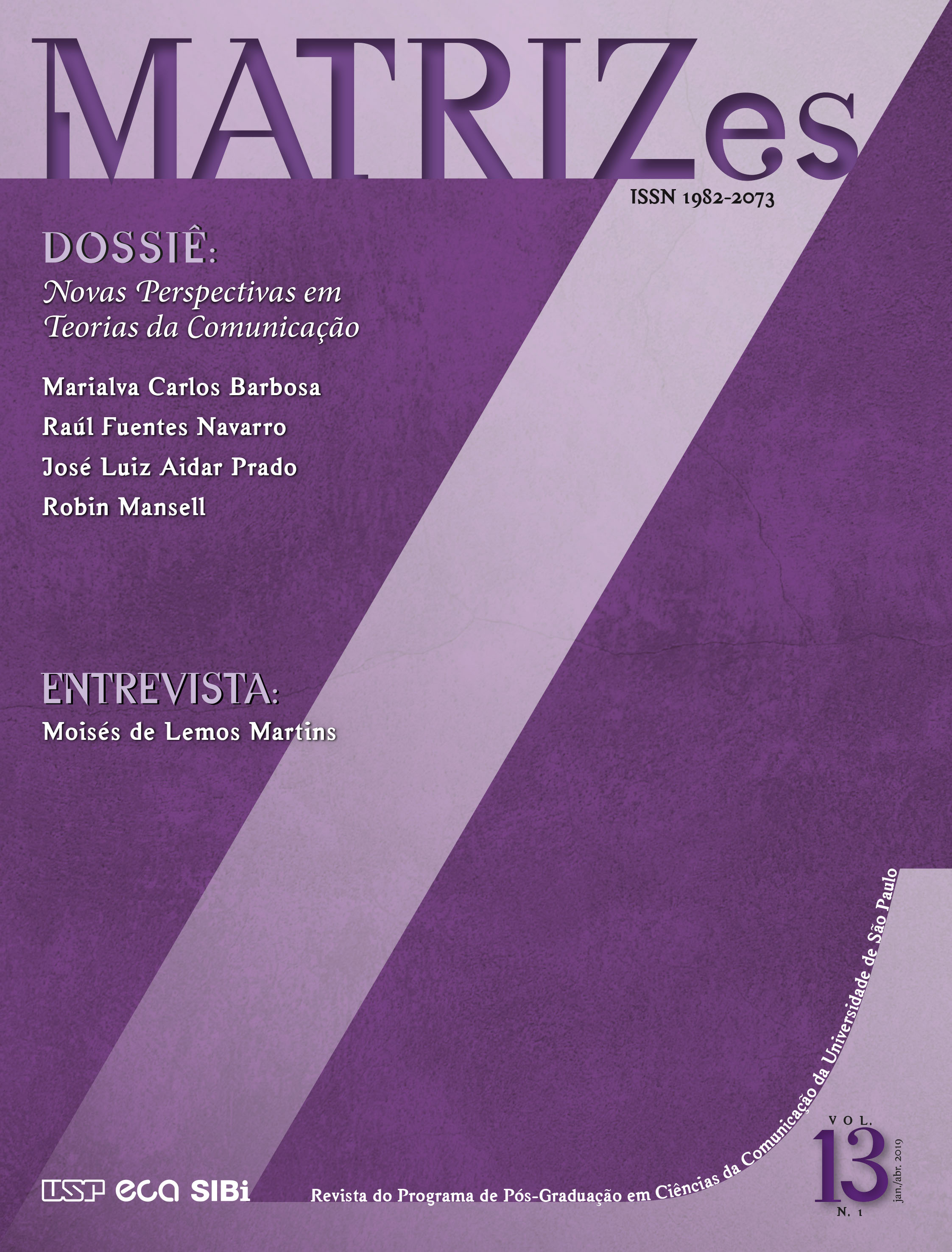Clean perversion in consumer culture
DOI:
https://doi.org/10.11606/issn.1982-8160.v13i1p49-70Keywords:
psychoanalysis; perversion; communicational capitalism; consumer culture; drives.Abstract
Contemporary culture is a perverse assembly, as it seeks to liberate the selfish subject to the world of the sensitive and the drive. In the 20th century an increasing liberation of the drives occurred, connecting the neurotic consumer and the puritan perverse. The perversion is sought, but remaining clean, demanding strong musical beatings and varied substances varying between the postmodern neurotic consumer and the puritan perverse to this end. The result is a society in which everyone internalizes the law of the market to satisfy the drives, disconnecting the subject function. To understand the transformations of communication culture of the perverse city, a psychoanalytic theory of the drives and passions is necessary.
Downloads
References
Chemama, R. (1995). Dicionário de Psicanálise. Porto Alegre: Larousse/Artes Médicas.
Dardot, P. & Laval, C. (2016). A nova razão do mundo. Ensaio sobre a sociedade neoliberal. São Paulo: Boitempo.
Dufour, D. R. (2013). A cidade perversa. Rio de Janeiro: Civilização Brasileira.
Dunker, C. I. L. (2017). Reinvenção da intimidade. Políticas do sofrimento cotidiano. São Paulo: Ubu.
Fontenelle, I. (2004). Mídia, acesso e mercado da experiência. Contracampo, 10/11, 185-200. doi: http://periodicos.uff.br/contracampo/article/view/17379
Fontenelle, I. (2017). Cultura do consumo. Fundamentos e formas contemporâneas. São Paulo: FGV editora.
Freire Filho, J. (Org.). (2010). Ser feliz hoje. Reflexões sobre o imperativo da felicidade. Rio de Janeiro: FGV.
Freire Filho, J. & Pinto Coelho, M. G. (Orgs.). (2011). A promoção do capital humano. Porto Alegre: Sulina.
Julien, P. (2003). Psicose, perversão, neurose: a leitura de Jacques Lacan. Rio de Janeiro: Cia de Freud.
Lacan, J. (1985). O Seminário, 20. Mais, ainda. Rio de Janeiro: Zahar.
Laplanche, J. & Pontalis, J. B. (1992). Vocabulário de psicanálise. São Paulo: Martins Fontes.
Lebrun, J. P. (2008). A perversão comum. Viver juntos sem Outro. Rio de Janeiro: Cia de Freud.
McGowan, T. (2016). Capitalism and desire. The psychic cost of free markets. Nova Iorque: Columbia University Press.
Melman, C. (2003). O homem sem gravidade. Gozar a qualquer preço. Rio de Janeiro: Cia de Freud.
Moreira, J. O. & Rosário, A. B. (2012). Culpa e narcisismo na tragédia moderna. Analytica, 1(1), 73-89.
Pezzotti, R. (2018). Convocações midiáticas para uma biossociabilidade do consumo: sentidos atribuídos ao corpo na corrida de obstáculos Bravus Race (Dissertação de mestrado inédita). ESPM, São Paulo.
Safatle, V. (2015). O circuito dos afetos. São Paulo: Cosac Naify.
Viana, S. (2012). Rituais de sofrimento. São Paulo: Boitempo.
Zilberberg, C. (2011). Elementos de semiótica tensiva. São Paulo: Ateliê Editorial.
Downloads
Published
Issue
Section
License
Authors who publish in this journal agree to the following terms:
- Authors retain the copyright and grant the journal the right to first publication, with the work simultaneously licensed under the Creative Commons Attribution License (CC BY-NC-SA 4.0) which allows sharing of the work with acknowledgment of authorship and initial publication in this journal for non-commercial purposes.
- Authors are authorized to assume additional contracts separately, for non-exclusive distribution of the version of the work published in this journal (eg, publishing in institutional repository or as a book chapter), with acknowledgment of authorship and initial publication in this journal.






















